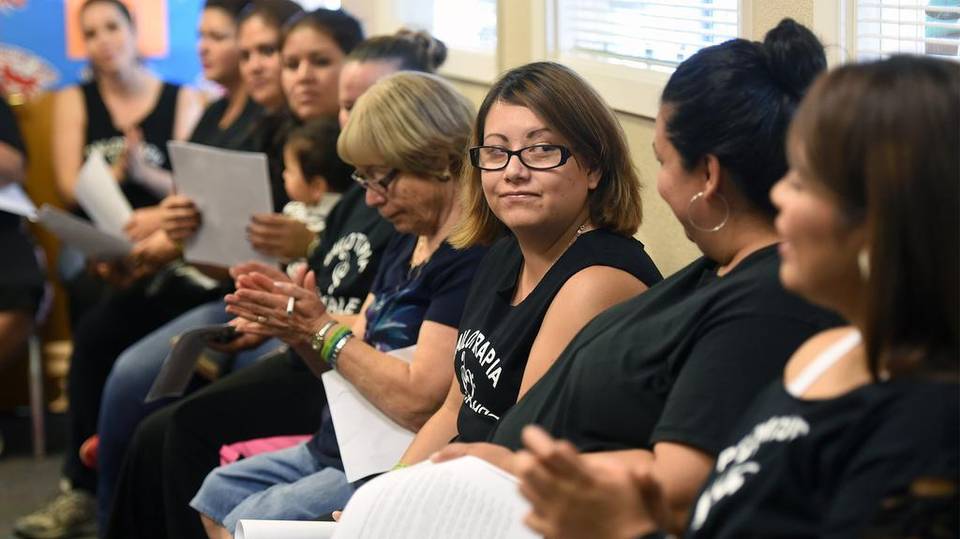Promotoras are essential workers bridging community health gaps in California | Opinion
By Maria Lemus Special to The Sacramento Bee
My youngest sister, Delia Anna, passed away two years ago from pancreatic cancer. Diagnosed at a late stage, she died just four months later. While incarcerated, Delia was a teacher to countless women, a mentor and a leader for women’s rights. She was what’s known as a “promotora” behind the prison walls, rallying for dignity and health.
Promotoras, a predominantly Latina and women-led workforce, connect underserved communities to culturally and linguistically relevant education and essential services. The promotora programs in California started in the ’90s (at the time, they were also called “outreach workers”). I am the executive director of Visión y Compromiso, one of several nonprofits that organizes promotoras.
During the pandemic, these women emerged as truly essential workers. They successfully reached individuals in places where others failed, effectively bridging the gap of misinformation and providing invaluable support and counsel during our most challenging times.

But after my sister’s release, she struggled to find the care and support she needed. Her struggle with cancer was compounded by a lack of access to appropriate medical care and support while she was behind bars.
Vital to our health system, promotoras are not just well-trained and committed, they also stand ready to respond at a moment’s notice. Without them, countless families would go unserved, missing out on crucial educational information and vital navigation to reach available services. The community health workforce would lose its gains on cultural and linguistic relevance across both traditional and non-traditional health entities.
Medi-Cal provides health care programs to the communities most served by promotoras. If funding is reduced or eliminated, preventive health and chronic health management services offered could cease to exist and community access to health systems and information would be less available.
California must invest in promotoras and their supporting community-centered organizations. Services provided by this workforce drives service innovation, saves lives and provides a model for healthier, more equitable and resilient communities in California.
They bridge gaps between health systems and communities, connect individuals with resources, offer culturally sensitive support and advocate for health equity. Every $1 invested in these trusted community workers cuts health care costs by up to $2.47 through reduced hospitalizations and emergency room visits. When Medicaid programs integrate promotoras and community health workers effectively, they register a 30% drop in costs for high-risk patient populations.
Cutting funding for promotora programs is a shortsighted mistake. Now, more than ever, we need their skills, talent and unwavering commitment to save lives.
Medi-Cal is the cornerstone of health care for one in three Californians, with comprehensive benefits providing essential services to low-income and vulnerable populations. Proposed cuts to Medicaid (Medi-Cal in California) and other measures by the federal administration risk community health centers and access to care and worsen health disparities. California must take action and protect Medi-Cal funding by actively opposing any federal or state-level cuts that would undermine this essential health care program.
Without strategic funding and community support, thousands of families could lose access to preventive care, mental health services and chronic disease management. This is not merely a budgetary issue; it is a moral imperative.
Strengthening Medi-Cal ensures that low-income Californians continue to have a reliable source of care. California legislators, advocates and community leaders must invest in promotoras; this workforce deserves the funding, comprehensive training and fair compensation needed to continue their vital work across sectors from behavioral health and maternal care to social services and environmental health.
We must prioritize and invest in community-based solutions that empower grassroots organizations. By lifting promotoras and the community-based organizations they affiliate with as key partners in preventive care, we not only address immediate health disparities, we also build long-term resilience for our state.
Maria Lemus is the executive director of Vision y Compromiso.

